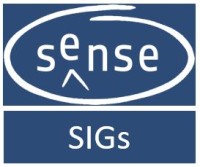SENSE Ed SIG meeting – Beyond IMRaD
I’m happy to announce that this will be the first real-time meeting of SENSE Ed since the COVID-19 pandemic- after a break of nearly four years!
Teachers of academic writing for universities need to be able to give advice about many aspects of writing. Some of us, myself included, have been trained as linguists, without having a scientific or research background. In the beginning, these teachers probably feel most confident when giving advice about matters connected with language use. As they go on, they come to feel more at ease about giving advice on matters such as structuring a research article. Fortunately, many fields of scientific research approach this task by using the well-known IMRaD structure: Introduction-Methods-Results-Discussion. And since numerous reference works describe how to get to grips with the basic elements of this structure, it doesn’t take long for the instructor to feel comfortable with it.
linguists, without having a scientific or research background. In the beginning, these teachers probably feel most confident when giving advice about matters connected with language use. As they go on, they come to feel more at ease about giving advice on matters such as structuring a research article. Fortunately, many fields of scientific research approach this task by using the well-known IMRaD structure: Introduction-Methods-Results-Discussion. And since numerous reference works describe how to get to grips with the basic elements of this structure, it doesn’t take long for the instructor to feel comfortable with it.
But what happens when these teachers find themselves confronted with a group of students who are not expected to follow the IMRaD structure? When dealing with social science, for example, everything we’ve learned about IMRAD goes out the window, and the articles often follow a much freer structure. In addition, authors in these fields can choose from an enormous variety of subject matter, with the result that the teacher trying to give advice is familiar neither with the structure nor the chosen topic. Is it still possible to provide meaningful input to these authors?
Recently, I have been teaching writing classes designed for PhD candidates in both social sciences and law, and the discoveries are coming thick and fast. At this SENSE Ed meeting, I’ll be joined in discussing this subject by SENSE member Maria Sherwood-Smith, who has extensive experience in teaching social science writers. After our presentation, participants will spend time in small groups looking at some of the most challenging cases we’ve encountered and asking themselves, ‘How could I best offer advice to this writer?’
I look forward to a lively in-person discussion with all interested teachers, editors, and others who work with academic English. I hope to greet many of you in Utrecht on 17 November.
-David


